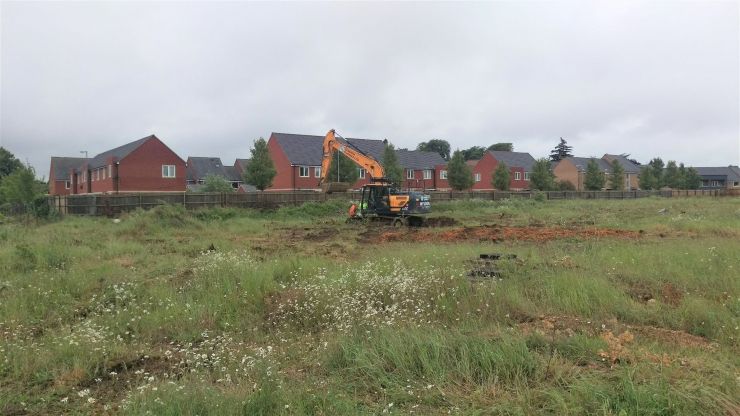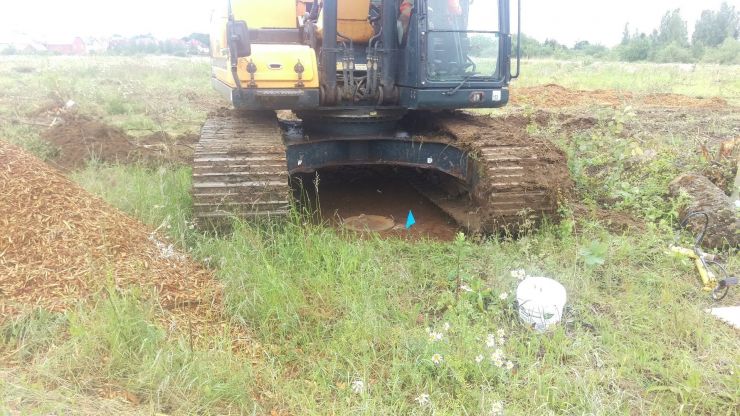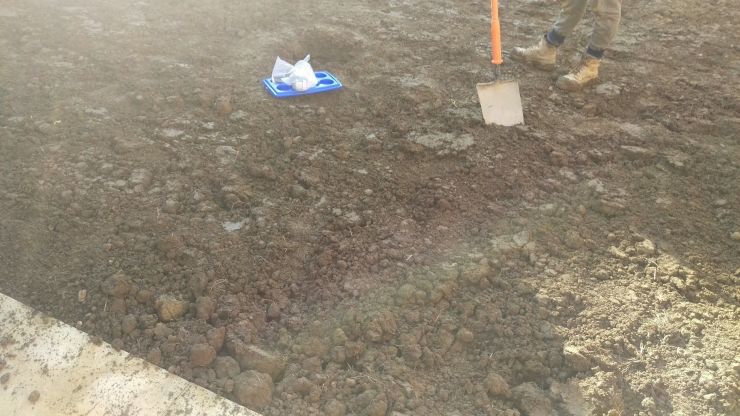Careers
Victoria - Senior Geotechnical Engineer
Meet Victoria, one of our Senior Geotechnical Engineers, who has been with Rolton Group for almost 7 years. We caught up with her to see what it’s like to be a Senior Geotechnical Engineer at Rolton Group.
What do you enjoy most about your role?
The variation in our projects/sites and the mixture of site and office work (getting outside in the sunshine!)
What is the most challenging aspect of your role?
Having lots of projects on at any one time can mean a lot of organisation is needed to keep everything and everyone on track. Additionally, waiting for the projects to be signed off by the local authority or environment agency can be very stressful.
What advice would you give anyone looking to become an engineer/get into the construction industry?
Explore the different areas of engineering (there are so many) by applying for work experience and placements, ask lots of questions!
What does your typical day consist of?
7:00AM
The time my working day starts depends on if I am starting the day in the office or going to a site. If I am on-site, I would usually set off around 7am to get there early.
8:00AM
Once I arrive at site, I meet with the machine driver and plate load technician to make sure everyone knows what they are doing on-site. On this particular day, the task was to complete plate load testing to determine if this site, which had previously been filled, is suitable for using raft foundations.

9:00am
I undertake a site briefing to ensure that everyone know what the aims for the day are. On this site, I have designed and agreed a sampling regime with the regulators to determine the suitability of the ground for raft foundations. The results of the testing will be required for me to draw an informed conclusion about whether the site is suitable.

10:00am
Our client had some questions about the proposed foundation design so I had arranged a site meeting while the testing was going on to discuss it with them.
Now things are underway, I went for a walk around the site with the client, to explain what we were doing.
11:00am
Having completed everything I needed to at site, I return back to the office. The first thing I do when I get back is check my emails and answer any that are urgent.
Once I have planned my tasks for the rest of the day, I start completing them. This could include updating the fieldwork schedule for any new projects that have come in, setting up meetings with clients or regulators, or reviewing data, reports and drawings.
12:00pm
Before I go for my lunch break, I receive a phone call from our client requiring a recommendation for soil strength for road design. This involved using the soil properties determined using our ground investigation to correlate to a suitable soil strength value.
2:00pm
After lunch, I spent the afternoon compiling a report for a site we undertook ground investigation on. This is done in a number of stages; I start by reviewing geological data, environmental data and historical mapping to compile a conceptual site model. Following this, I review the results of testing undertaken on soil samples to determine if any remediation measures are required. The final stage is to produce recommendations for proposed infrastructure and any remediation.
3:00pm
Later in the afternoon I head out again to undertake a site inspection. This particular site required sign-off of a capping system to a private garden, which we had recommended be placed to protect the house owner from any contamination linked to the previous site use.

5:00PM
Back at the office I
catch up with our geo engineers to ensure that any reports are underway or that
fieldwork for the week is arranged. The
last thing I do at the end of the day is to write a list for the following
day’s tasks or prepare for any early morning site visits. I usually head home around 5:30pm.